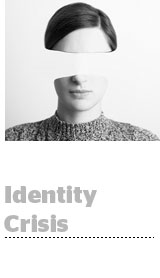 Here’s today’s AdExchanger.com news round-up… Want it by email? Sign up here.
Here’s today’s AdExchanger.com news round-up… Want it by email? Sign up here.
SAP Grabs Gigya
Germany-based SAP dropped $350 million, according to reports, to acquire identity management player Gigya. According to Reuters, “The acquisition beefs up SAP’s ability to help companies doing business in Europe to comply with privacy regulations such as the EU’s upcoming General Data Protection Regulation.” Gigya manages 1.3 billion profiles. Read it. Recently in AdExchanger: How US chain PF Chang’s used Gigya to manage social authentication and login data. Read that.
Wild West
Despite Facebook CEO Mark Zuckerberg’s commitment to offer more transparency around who buys political ads on its platform, murky campaign finance laws will make it tough for regulators to police the spread of politically charged ads on Facebook. US government regulations only require ads that are paid for by the campaign and/or advocate for a specific candidate to disclose their funders. But more indirect ad buys that wield political influence, like the Russian-backed ads ProPublica discovered on Facebook [AdExchanger coverage], aren’t covered. “Facebook is so gargantuan, it’s exceeded our capability to manage it,” Siva Vaidhyanathan, director of the Center for Media and Citizenship at the University of Virginia, told Wired. More.
Data Aggregators Beware
While the Equifax hack has little direct bearing on the digital ad ecosystem – which purposely obfuscates real identity and avoids sensitive personal data – the meltdown does offer a cautionary tale. In recent years, under CEO Richard Smith, the company has pushed into new sensitive areas like health care and plumbed new data sources, including social channels. That data would then be appended to ever more nuanced consumer profiles, unbeknownst to those consumers. “The push into wider data sets turned Equifax into a business that housed ‘$12 trillion of consumer wealth data,’” Smith said six years ago. “Without us, you wouldn’t have global commerce as you know it today.” More in The New York Times. And in The Wall Street Journal.
QR Code Redux
Brands like Evian, Gatorade and Wendy’s are adopting “Snapcodes,” essentially QR codes that connect purchases to campaigns on Snap and offer a chance for brands to collect first-party data. Brands using Snapcodes can place Snapchat’s logos on packages for free. Consumers scan the code to unlock exclusive features, content and games, often in exchange for a name or email address. Snap claims 8 million code scans per day. “Snapcodes provide a real frictionless way for consumers to engage with us and our content in a place where they already are from a mobile perspective,” said Kenny Mitchell, head of consumer engagement at Gatorade. More at Business Insider.
But Wait, There’s More!
You’re Hired!
This post was syndicated from Ad Exchanger.

More Stories
Fisher Funds named sponsor for New Zealand Legacy Award
Everyone must go Tourism NZ campaign is no 100% Pure… But this might just work
Waka Kotahi tackles drug driving with FCB and MBM